Stars Over Broadway (1934)
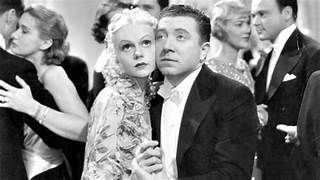
Toronto Film Society presented Stars Over Broadway (1934) on Sunday, October 18, 1987 in a double bill with The 5,000 Fingers of Dr. T as part of the Season 40 Sunday Afternoon Film Buffs Series “A”, Programme 2.
Production Company: Warner Brothers release of Sam Bischoff Production. Director: William Keighley. Screenplay: Jerry Wald, Julius Epstein, based on a story by Mildred Cram, additional dialogue by Patsy Flick. Musical Numbers: Busby Berkeley, Bobby Connolly. Songs: Warren and Dublin. Cinematography: George Barnes.
Cast: Pat O’Brien (Al McGillevray), James Melton (Jan King), Jane Froman (Joan Garrett), Jean Muir (Norma Wyman), Frank McHugh (Offkey Cramer), William Ricciardi (Minotti), Marie Wilson (Molly), Frank Fay (Announcer) E.E. Clive (Crane), Eddie Conrad (Freddie).
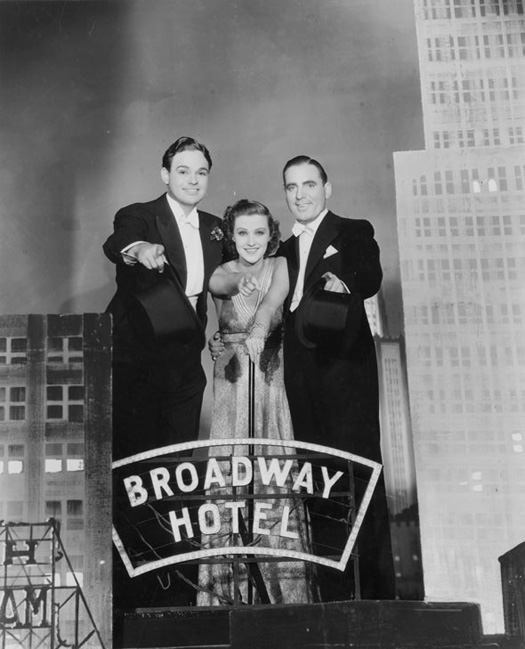
A Warner Brothers “fun film” of the 30’s kicks off today’s musical double-bill. And while our second feature will take us into the land of fantasy and the unknown, little is left to the imagination with our opener this afternoon. The idea here was not new in the 30s–the transfer of familiar radio voices to the screen–so that the voice heard through the speaker was now to be seen in all the big-screen glamour of the time.
It’s another of the “back-stage” stories–this time with Jan King (Melton) rising from hotel porter to radio star overnight, thanks to the good work of his manager (O’Brien). And therein, very simply, is the plot of the film.
It was the first film appearance for both Melton and Miss Froman, and was the “first toe in the water” of the movies for the two very popular radio vocalists. Reviewers noted at the time that Froman had more stage experience than Melton, and showed it.
Melton was not quite at home with his “great lover” role, but there was no hesitation when it came to the use of his golden pipes.
The female lead in the film goes to Jean Muir, who has to take the back seat to the two vocalists, since it is a musical motion picture. She hangs in well in the acting sequences, but obviously is only “moving the lips” when it comes to the musical segments.
O’Brien, in his role as the agent, handles the assignment well.
Frank McHugh has the comedy to a great extent, no problem for this veteran; and Marie “The Body” Wilson lives up to her billing.
The songs came from the duo of Warren and Dubin, and are well-handled by Melton and roman. Melton gets the chance to show the full range of his vocal talents in a rendition of “Celeste Aida”.
Another highlight of the film is the amateur hour interlude, where Frank Fay steals the show as master of ceremonies.
Director William Keighley was born in 1899 in Philadelphia, and began his work on the stage, first as an actor, then director. He arrived in Hollywood with the advent of sound, and worked first as an assistant director and dialogue director, moving to the director’s chair in 1932. He was under contract to Warner Brothers for most of his career, and had assignments ranging from second features to major productions. He worked best with gangster and adventure films. Keighley gained stature with his direction of Each Dawn I Die (1939), G-Men (1935) and Bullets or Ballots (1936). For what it’s worth Joseph Stalin told Roosevelt that Each Dawn I Die was his favourite film. In the comedy vein, Keighley was the director on The Man Who Came to Dinner. Genevieve Tobin, his wife from 1928, starred in several of his pictures. He retired in the early 1950’s and moved to Paris.
Notes by Bill Sturrup

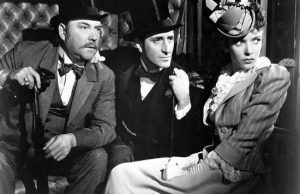
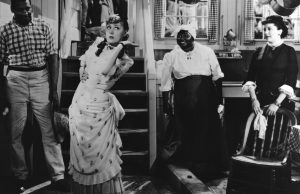
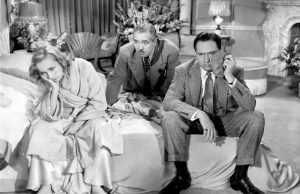






Leave a Reply